“Media Ethics” Dead or Alive!
The American lawyer Potter Stewart once said, “Ethics is knowing the difference between what you have a right to do and what is right to do.” Observing the present trend of making news, one can easily say that media ethics and reality are moving away from each other. From public opinion we have found out that from asking irrelevant questions to making wrong statements and assumptions is the current trend with the media as they are in a hurry to declare breaking news. Crossing the limits and breaching the privacy of people, media houses have made us witness things that we are not supposed to for humanity’s sake. Although not all media houses resort to cheap and sensationalist tactics, some media houses and their correspondents have made a circus out of serious issues.
Right now, the situation is worse than what the media landscape looked like a few years ago as some so-called mainstream media channels are following the digital media trends and giving importance to news that one might otherwise consider unworthy for a prime time debate. Of course they are losing their credibility and creating nuisance. In the last few months you may have noticed that while there are a number of important issues that need immediate attention, most of the media houses are busy in showing news about extramarital affairs and other titillating stories.
We, at My City Links, have always tried our best to analyze and present things in an informative manner. We believe in providing information and not making judgements. While analyzing the topic of Media Ethics in the present time, we talked with senior journalists, lawyers and the public about this and here is what we found.
The Fourth Pillar Of Democracy!
Scottish essayist, historian and philosopher Thomas Caryle called the media ‘The Fourth Estate of the Realm’. which means that the media is the watchdog of the constitution and thus is a vital cog in any democracy. India is the biggest market in the world of media with more than 82,237 newspapers and more than 900 television news channels running all over India in different languages and these numbers are still constantly rising everyday. Nowadays, social media platforms like Facebook, WhatsApp, Twitter and others are catering news without taking any responsibility of verifying the authenticity of information, and the news spreads like wildfire on these global platforms.
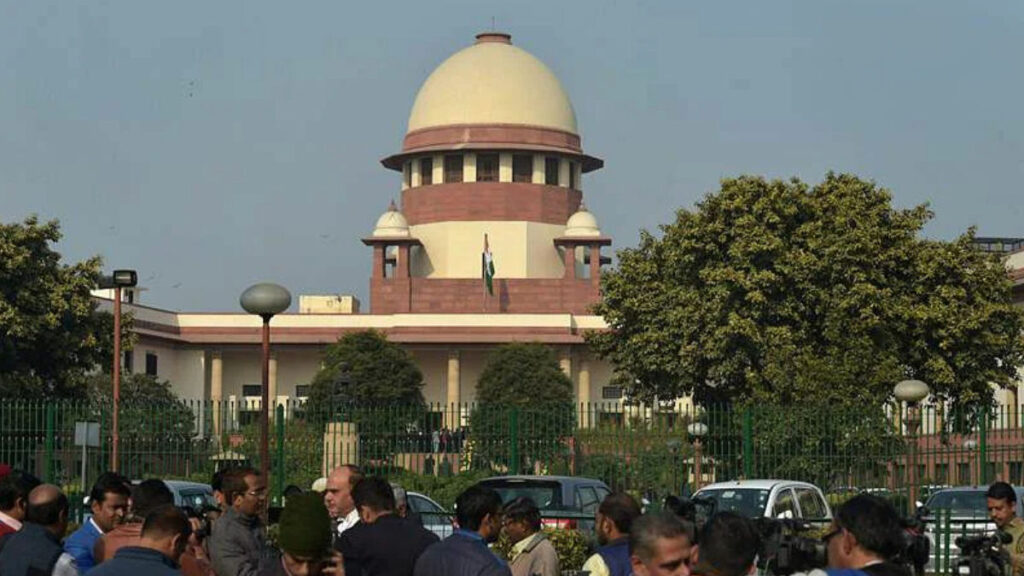
Senior Journalist Surya Deo feels that we are forgetting about being sensible and are running behind sensationalism instead. He said, “That’s the main reason behind such callousness these days. The way journalists are asking questions now, it seems like they are the judges of a court. The ground work/ homework needed while covering a particular event or situation is not there. Our people have no time for any kind of research before covering anything.“
People use the media to become aware about various social, political and economic activities. Even if a media house has its own opinion, they can only publish it in the editorials where the public can assess it.
Senior Journalist Rajaram Satapathy stated that the basis of news should always be truth. He said, “Instead of publishing news which is relevant to common people, nowadays the news is being published only for a few powerful people, who are legally or illegally funding them. This is not acceptable at all. For instance you may have heard of the news from Dhenkanal, where journalists were banned from entering government schools. This is not right at all and at the same time since the mainstream media is busy in publicising the people in power, the web media has become the tool these days which is bringing forward many public issues widely. Every single media company owner wants to see their organisation doing better in terms of generating revenue, which is fine. But they need to think in what way they are going to achieve this goal.”
“Trivialism has become news now. I would not say that making fake news or being biased is a new thing in news. All this has always been there, but its intensity and rate has definitely increased. That’s the reason why people are not happy with it and losing faith on the mainstream media. Increase in such things will definitely hamper the credibility or the importance of media in the society,” he added.
Who Is Responsible?
Surya raised a question and asked, “It is a big question whether the new young guys are not guided properly by their seniors or are they not listening to them. They are unable to distinguish between news worthy and unworthy content. You just cannot publicize a wrong thing and say the audience has selected it. For instance, even if I am not interested to know about a particular news, I may watch it out of curiosity, as multiple channels are talking about it. And that’s how they get a huge number of views within a short period of time. Audience has fewer options to reject unworthy content in the era of digital media.”
One of the young journalists, Subrat Kumar Nayak said, “In the past people used to believe newspapers and TV news channels. They used to check facts from the news. But now the time has changed; now people believe in information on social media more than the traditional news. There is no difference left between entertainment and news channels. When they say that they are doing this because of the audience’s demand, I want to ask them are these audiences your target group or you are being misled. Are these audiences news viewers? No, absolutely not. Being journalists or media houses, we should be more responsible in educating people by giving them information. If we are going with their wishes, then there are people who also want to watch porn, are we going to start publishing porn for them?”
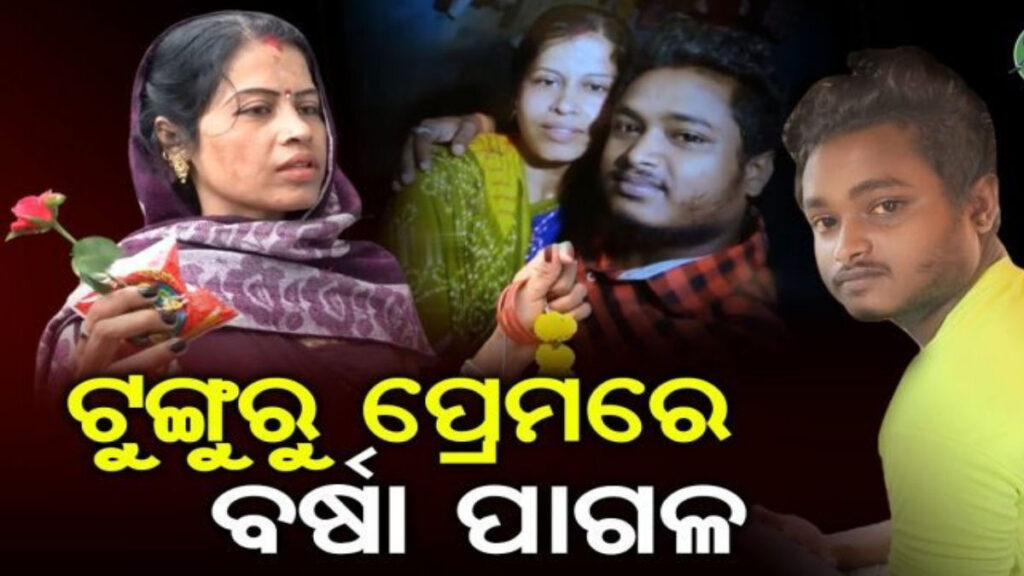
Advocate, Odisha High Court, Byomkesh Tripathy says if news like ‘Tunguru Bhola’ is going viral, only the media is not responsible for that. He said, “I would say the people are also responsible for watching, liking and sharing such things. For instance there is a liquor shop and a medicine shop; I can choose what I need. I am not bound to have liquor just because it is there. Along with the news media, our citizens should also be responsible.”
Humiliation Defeats Humanity
Even though our professions and duties are important we are humans first and hence we should have the humanity within us. But in most fields of work we may have noticed this is lacking. Deo said, “I have seen the video where a journalist asked veteran actor Bijay Mohanty’s mother, an old lady, about his death. This is not humanity. Back in the day we used to do snippets/ gossip columns on celebrity lives. But now a new trend has been seen, where even if you are a common man your personal life can also be interesting news. For instance, let’s say my son or daughter has left my home for his/her love and that is being circulated in news channels. Can you just imagine what goes on a father or mother’s mind during this time?”
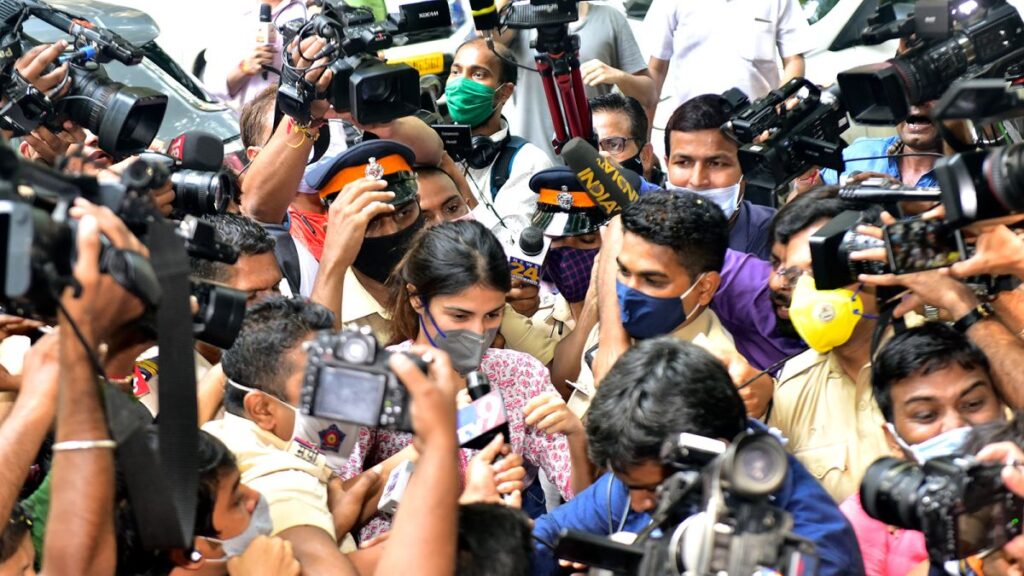
“We know the media house owners need revenue and a good profit. They are asking their reporters to stoop low, and they are simply doing whatever they are asked to do,” added Subrat.
Mentioning a journalist shouldn’t forget his/her limits. Rajaram said, “When Raimohan passed away, I saw some media people asking questions to his neighbours trying to find some gossip about his relationship with his family members and other facets of his life. Here, a journalist should ask them what is the basis of their statement that might malign someone’s reputation. They can’t just say anything about anybody in a public forum without verifying facts.”
The Breaking News
If you switch on any news channel these days, some or the other news flashes on the screen as breaking news. Many people like to keep themselves updated and they keep looking for updates on their smartphones. If everything becomes breaking news than we will have to find other places where we can find news that is helpful.
The news needs to have accurate content and should be relevant to the date. If the news is some old event, it should not be considered breaking news. There needs to be a balance. There should be no partiality, and it should seem in concern of people and the audience looking at the news. Sometimes the news is not what it looks like, and it is why journalists should confirm with the authorities’ statements. But being in a hurry rarely any journalist does that in the present time.
Referring to the god man Sarathi Baba’s arrest news, Rajaram said, “I saw a report somewhere, which said that there are undergarments of ladies found inside the Baba’s room, and also there were cameras in female washrooms connected to Baba’s bedroom. Police have seized them all. I have a question, if this case has been transferred to the Crime Branch then even a Police officer is not allowed to the place of crime while investigation is being conducted. How is it possible for a reporter to witness all this? If he/she has seen all this by his/her own eyes then he/she can write about it, but if not then this is baseless. I remember, I immediately called up the Crime Branch officer then and did a query about it. He said that they haven’t found anything like that. The problem is nobody has called them up to check the reality. Someone spread some rumour and most people including the media just followed it without investigating.”
When there is breaking news on the screen, people like to get all the information they can. There should be no speculation in the news. If they don’t get the information that they need from the news then they will resort to social media and thus get into a never-ending pit of fake news. That is why it is the duty of the journalists to report facts.
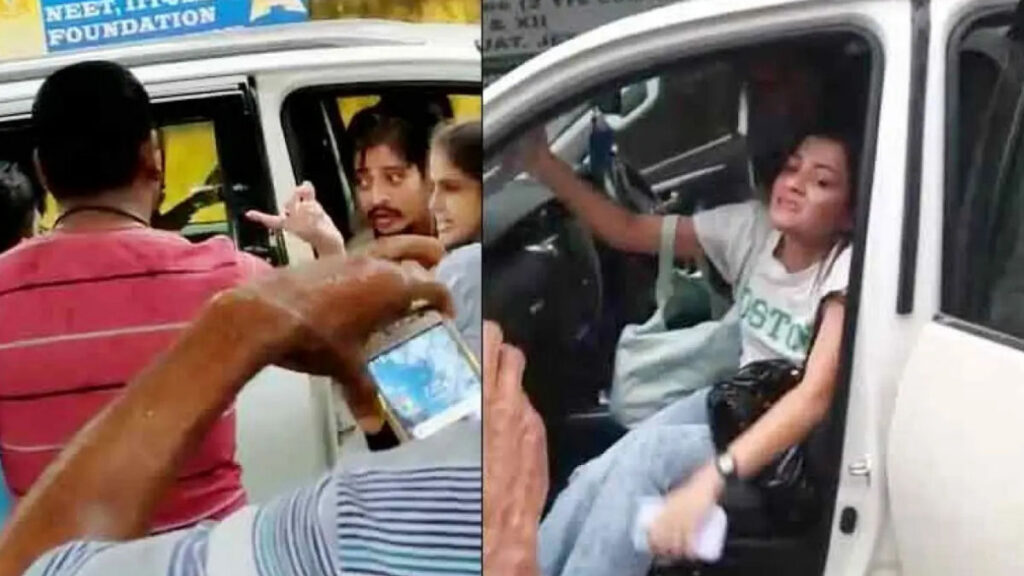
Referring to another interesting incident, Subrat said, “Few years back a news broke that during a flood a crocodile entered a village in Odisha. Every single news channel in the state was covering it and showing it as live news. All the reporters were talking about the crocodile and the situation at the village even if not any of them had seen it in real life. A reporter has also said that a war has begun between the forest department and the reptile. Later on, everyone found out that the viral video of the crocodile is an old video from another state. So it’s like an international scam I would say (chuckles).”
Public Opinion
For any kind of business the consumers are the most important factor and when we are talking about the business of news, definitely it’s the public that matters. Talking to My City Links, Debamitra Das, a corporate employee said, “I used to depend on TV and newspapers to keep myself updated about current happenings around me, but then all these digital mediums like Facebook and Twitter changed my habit and I got hooked to them. But again, in the present time I am a bit confused to choose between all these as the society and the system is running in a fast and furious manner. The tough part is being an average citizen we don’t have any tools to check the facts.”
Rahul Mohapatra, 12th grade student, says it’s annoying to watch television these days. He said, “We hardly get any time to watch television, but we are annoyed by the kind of news being published in most of the mainstream media. The fact is most of them are politically biased and the rest are irrelevant topics discussed for hours. I don’t know how and why they just stretch a single line for more than 2-3 hours till they get new inputs in it.”
Rajesh Mohanty, an auto-rickshaw driver felt ashamed when the ‘Tunguru Bhola’ news got viral and is not happy with the situation. He said, “We work very hard to take care of our families and when Tunguru was highlighted not as a person but as an auto-rickshaw driver, it made our lives miserable as the autorickshaw community. People were laughing at us saying Tunguru has made a name for himself and we should try something like that. This is really shameful for us.”
Aisha Singh, a homemaker, feels the quarrels between a husband and wife are not news for the public to consume and the media should stay away from such things. She said, “I am also not happy with couples taking their private things to the media. They should understand that publicizing your private life may ruin their lives.”
A businessman, Depak Sahu stated that there are many real issues of the state which need more attention. But unfortunately the unworthy things are taking all the limelight. He said, “I have seen music directors making songs on many nonsense news recently, but no one of them tried to give a tribute to the recently elected President Draupadi Murmu, who does have a very inspiring story.”
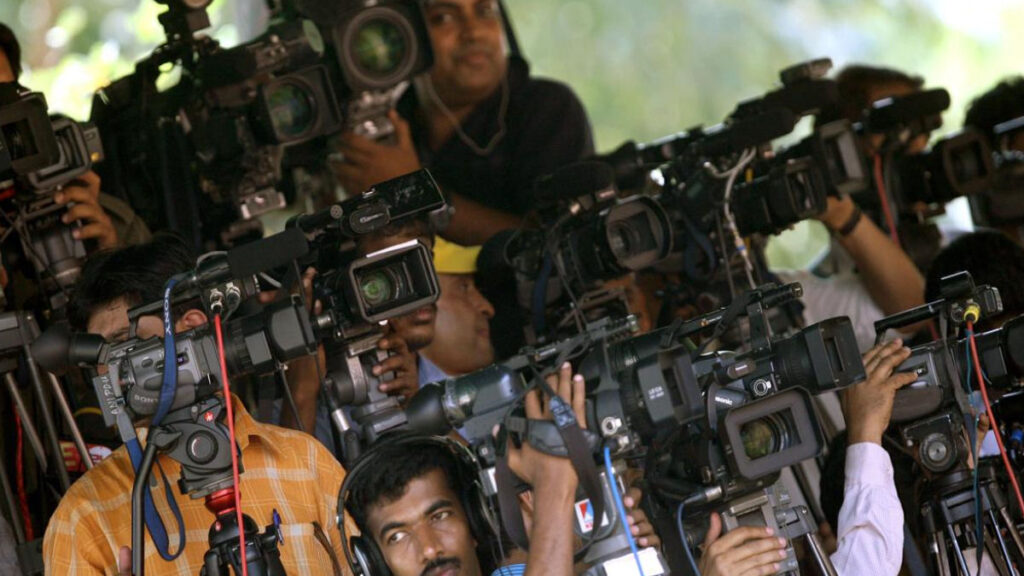
A senior citizen, Lakshmidhar Behera feels nonsense stories are taking up space and time in the current news landscape. He said, “The monsoon session of the assembly is going on in the state right now and events like newly elected President Draupadi Murmu taking the oath of the highest office in the country are ignored by our news channels who are preferring to discuss the personal lives of Odia actors Babushan Mohanty and Prakruti Mishra which has no importance or relevance in our lives.”
What does the Indian Constitution Say?
Article 19 of the International Covenant On Civil And Political Rights states that the right to freedom of speech, means, everyone shall have the right to hold opinions without interference and freedom to seek, receive and impart information and ideas of all kinds, regardless of frontiers, either orally, in writing or in a print, in the form of art, or through any other media of his choice.
Advocate, Odisha High Court, Byomkesh Tripathy feels that ethics is nowhere now in any sector. He said, “Not only the media, but nobody in the present time is eager to follow any ethics. Any mainstream media you pick these days is related to any of the political parties. They used to have a monopoly, but in the digital era with different platforms open to all, they can’t do it at all. Being money minded, no one is giving a second thought before publishing the news.”
“The honourable Supreme Court has clearly mentioned that the accused person is free till he/she has not been proven guilty in the court of law. But today we can see that every single news media are openly publishing pictures and videos of accused individuals, which is wrong, and this is happening mostly in the case of male accuseds. If any of them files a case against any news media, there are laws to take actions against them. If a media house is proven to be guilty strong actions can be taken like shutting it down completely. As they are violating the law of the Supreme Court, this is a contempt of court. If you are in India you are bound to walk on the left side of the road, you can’t just deny that you don’t know this. If you are running a media house you should know and follow the guidelines by the Supreme Court,” he added.
“The media is there to report, not to decide. Trial generally takes place in the court but media trials are happening on every news channel now. In a recent example when a female artist from the Odia television industry committed suicide, media published the accused boyfriend’s pictures everywhere and as a result, after a few days he also committed suicide. If any victim of a media trial ever files a case on a media house, our constitution has laws to take actions on it,” Surya added.
The media laws are like the Constitution of India, that means they are rigid and flexible at same time. Article 19(1)(a) of the Indian Constitution is the biggest support to the media as it provides the right to freedom of speech and expression which are followed with Art.19(2) that provide some reasonable restrictions and states as nothing in sub-clause (a) of clause (1) shall affect the operation of any existing law, or prevent the state from making any law, in so far as such law imposes reasonable restrictions on the exercise of the right conferred by the said sub-clause in the interests of the sovereignty and integrity of India, the security of the state, friendly relations with foreign states, public order, decency or morality, or in relation to contempt of court, defamation or incitement to an offence.
The Press Regulation Act, 1799: This regulation made it mandatory for newspapers to print the name and addresses of printers, editors and publishers. The Gagging Act, 1857: This act gave the powers to the government to prohibit the publication if it has the tendency to criticize the government. The Vernacular Press Act, 1878: This act gave the British power to curb the newspapers which were printed in Indian languages.
The Indian Press Act, 1910: This act makes it mandatory for the owner of presses to require submitting security deposits, which can be forfeited if they print any objectionable matter and it also gave the powers to the police to seize any objectionable material. After the Indian Independence, the media were given the freedom but with reasonable restrictions through the Constitution and various legislations which are The Contempt Of Court Act, This was introduced in order to maintain the honour and dignity of the Judges and their judgments.
The Young Persons’ (Harmful Publication) Act, 1956: This act was introduced to prohibit the publication of any such type of literature which will affect the young readers. The Cable Television Regulation Act, 1955: This act provides for mandatory registration of all the cable operators, to transmit the Doordarshan Channels through the cable. Press Council Of India Act, 1965: It is a statutory body to govern and regulate the functions of mainly print and electronic media.

Author: Jyoti Prakash Sahoo
Hailing from the entertainment industry, Jyoti started his career as a cine journalist in 2017. He is an anchor, actor and creative writer too. Currently working as the Content Head of the Odia entertainment YouTube channel 'Mo TV', Jyoti also loves to write human interest and positive stories that can inspire the readers.
Read more from author


